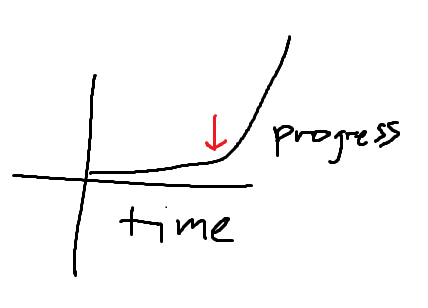It seems cliché to make these lists, but I figure you might be able to learn something from me, too.
1. Most people spend their entire lives killing time.
2. Most people, when presented with facts that contradict their opinions, will double down on their beliefs.
3. Everybody thinks they’re smart.
4. It’s hard to conceptualize just how difficult this year has been until you hear stories like this one:
“In other news, my clinic’s been cleared of our outbreak. 12 residents died. A lot more have had severe declines.
-A close personal friend of mine
“My parents’ business is dead, and they just totaled their car, so we’ll probably have to buy them a new car and have to deal with their stupidity even more since they won’t be working. They spend almost every day at the casino and beg for money almost every week.
“Meanwhile, I’ve also been opting out of my salary so my employees can work enough hours to pick up partial unemployment and not get laid off, and I’m still in trouble with the divisional higher-ups because our financials are good and fucked anyways. Oddly enough, when we have an active pandemic in our building that’s killing people, my therapists are less productive.
“We lost four in a fucking day, and they were relatively young and active. One lady told us before she went out that she didn’t want to die like this. She did anyways.
“Her room was across from my office and we’d chat every time I went in or out. Kinda sucks seeing her empty room every day.
“Oh well. Throw ’em in the pile with the dead elderly. At the end of the day, no one really gives a fuck anyways.”
All this because people can’t help but be selfish.
5. Dating is manipulation.
6. Ted Kaczynski was right.
Maybe I should write a little bit about this one.
Ted Kaczynski, also known at the Unabomber, was known firstly as a domestic terrorist and secondly as one of the great philosophers of our time. Netflix has produced a few miniseries on his capture but they don’t cover his writings. Go figure.
To summarize, Ted writes that technology is directly detrimental to society, causing widespread psychological suffering, making life unfulfilling. People no longer have to work hard to survive; all laborious tasks have been automated, and people are filling up the rest of their time with what he calls “surrogate activities.” These can be anything where people strive for artificial goals, like consumption of entertainment, building collections, political activism, or following sports teams.
This advancement in technology is also restricting human freedom. You must be more and more reliable on technology as it advances, as society necessitates. How difficult is it nowadays to do anything that hasn’t had technology impact it in some way?
This pandemic has made it startlingly clear how much we rely on technology today. If it’s suddenly taken away, then civilization is doomed. This fact will only be made worse as civilization advances further, as technology is granted a tighter grip on humanity.
Y’know, the crazy thing about what he wrote is that his manifesto was written in 1995, and he started to adopt this line of thought two decades earlier. And was he wrong?
You can find his manifesto here. It’s not short. And if that fact alone is reason enough to deter you from reading it, then maybe you’re just proving his point.
7. Coriander and cilantro are the same thing.
and paprika is ground dried red bell pepper.
8. Everybody needs help in one way or another.
Some people can buy it. Most others can’t.
9. University is a waste of time and money unless you already have a clear and definite idea of what you want your career to be.
Let’s be real, not a lot of people do.
You’re better off going to a cheaper trade school to try out some other things before you make a full commitment. It’s better than spending your entire life paying off a debt for something you hate doing. While you’re doing it.
10. A lot of people don’t deserve to be where they are.
Unfortunately, this goes both ways. It’s amazing what you can do with money.
11. When civilization ends, there will be no record of the current day.
None. Zero. Unless somebody starts etching some records onto stone or something else that can withstand nature and time, everything will be lost as soon as electricity and the internet are lost.
12. The world needs some better communication, education, humility, and humanity.
It’s not going to get any of them.
13. It’s possible that you can spend hours and hours working on projects, receive many kind words after they’re released, and still be unsatisfied with how they turned out.
14. 14 is as good as 20.
No use in artificially extending the length of a post that’s already pretty long.
I’m going to sleep in the new year.
So long, 2020. It’s been wild.


